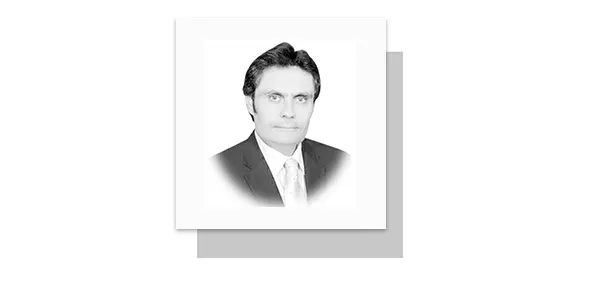OUR readers must have noted that, more than any other national leader, Maulana Fazl-ur-Rehman, the Amir of JUI-F, is reluctant about having elections towards the end of January. The main reason for this reluctance seems to be the relentless attacks of the Islamic State of Khorasan Province (ISKP) on JUI-F ranks and leadership. Besides the JUI-F, other religious parties like Jamat-e-Islami and Jamaat-ud-Dawa are also in the crosshairs of IS-K. However, the main brunt of IS-K violence has been borne by JUI-F.
Aslam Ghauri, a JUI-F spokesman, has said that certain anti-democratic elements fighting alongside the Taliban have come to Pakistan and started launching attacks here. Ghauri further said, “I have lost more than 20 companions in the last 7 – 8 months who had been taking part in political activities.” He added, “We cannot freely carry out our campaigns in Khyber-Pakhtunkhwa and Balochistan. The party leaders cannot appear in public as the government has been informing us about these threats. How are we supposed to contest the election?” Ghauri further said, “Afghan Taliban did issue a statement of condemnation for attacks on us. But at the end of the day, it is the duty of our security agencies to provide us protection.’’
The main reason for ISKP’s animosity towards JUI-F and other Islamic parties is the belief of these parties in democracy and elections to get to power. These parties, according to ISKP, also believe in a Republic and the concept of Nation States. Now all these concepts are thought of as un-Islamic by ISKP. The ISKP, on the other hand, believes in a complex narrative based on core Islamic state ideology which is inherently against democracy and political parties. They believe in a global Islamic Caliphate led by ISKP.
For this reason, ISKP also considers the Afghan Taliban an adversary because they are content with one Islamic State only in Afghanistan and are not striving for an Islamic Caliphate throughout the world. The Pakistani Islamic political parties like JUI-F are considered to be subsidiaries of Afghan Taliban in Pakistan. The animosity of ISKP with JUI-F is a long and bloody one. One of the major terrorist incidents against JUI-F by ISKP took place on September 14 in Jolo area in Mustang district of Balochistan. The main target of the attack was former Senator Hafiz Hamdullah. The attack resulted in severe injuries to Hafiz Hamdullah, who was rushed to Karachi for treatment.
The latest series of terrorist attacks against the JUI-F started in 2019 when JUI-F became vocal against ISKP. On July 30 this year, more than 60 people were killed when a suicide bomber attacked JUI-F political rally in Khar City, the Capital of Bajour district. The ISKP accepted the responsibility of the attack, published by its official media outlet. On August 6, an office bearer of JUI-F, Mufti Khair Zaman, was shot dead in Lakki Marwat. Maulana Fazl-ur-Rehman has been targeted five times but was lucky to escape unhurt. Many JUI-F leaders have been killed and many more are on the ISKP’s death list.
In May 2017, an attack in Quetta, Balochistan, had targeted Senator Maulana Abdul Ghafoor Haidari. The attack was also claimed by ISKP and resulted in the death of over two dozen people. In May 2018, the ISKP assassinated another prominent JUI-F leader, Mullah Habibullah. These incidents, of course, underscore the persistent security challenges faced by JUI-F as a party. The ISKP has echoed much of its criticism against JUI-F in a series of articles published in its Pashto language magazine “Khorasan Ghag”. The ISKP has expanded its narrative by including all religious parties that participate in elections to be the enemy of ISKP. The secular political parties are, of course, on the hit list of ISKP.
The ISKP has recently published a book in which it has issued threats of attack on all political parties that are planning to participate in the elections and conduct an election campaign. The book basically contains religious rulings proclaimed by ISKP’S jurists, which justify such attacks against political parties, politicians, and public rallies. Analysts of terrorist attacks believe that political parties, especially religious political parties, remain on the hit list of ISKP. These attacks certainly have the potential to disrupt the entire election campaign.
Although JUI-F seems to be at the top of ISKP’s hit list, these terrorist attacks are not limited to JUI-F. In 2022 and 2023, the ISKP launched attacks killing Jamat Isharat ut Tawheed members, as well as near assassination of Jamat-e-Islami leader Siraj-ul-Haq in Balochistan. Furthermore, in its propaganda, the ISKP has violently berated Jamat-e-Ahle Hadees, Pashtun Tahafuz Movement, and, of course, the main secular parties like PPP and PML-N. All these parties have received similar threats from TTP also. In view of the forthcoming election season when more active politicking would be involved, political leaders can be assassinated by enemies in the garb of these militant outfits. The recent assassination of Arbab Ghulam Muhammad Kasi in Balochistan may fall into the above-mentioned category.
General elections under such circumstances may be disrupted. But elections, nevertheless, must be conducted; we must not forget that most nations have even conducted elections during wars. We must trust providence and take all the precautions to hold fair and free elections, which, in my opinion, is imperative to remove some of the uncertainty prevailing in the nation. Early elections may not be the final solution to our travails as a nation, but then as a democracy, that is the only best possible solution available to us.
—The writer, based in Islamabad, is a former Health Minister of KP.
Email: [email protected]










